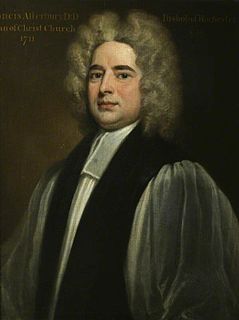A Quote by Ludwig von Mises
The member of a contractual society is free because he serves others only in serving himself. What restrains him is only the inevitable natural phenomenon of scarcity.
Related Quotes
If a young man gets married, and starts a family and spends the rest of his life working at a soul-destroying job, he is held up as an example of virtue and responsibility. The other type of man, living only for himself, working only for himself, doing first one thing and then another simply because he enjoys it and because he has to keep only himself, sleeping where and when he wants, and facing woman when he meets her on equal terms and not as one of a million slaves, is rejected by society. The free, unshackled man has no place in its midst.
Man perfected by society is the best of all animals; he is the most terrible of all when he lives without law and without justice. If he finds himself an individual who cannot live in society, or who pretends he has need of only his own resources do not consider him as a member of humanity; he is a savage beast or a god.
Born often under another sky, placed in the middle of an always moving scene, himself driven by the irresistible torrent which draws all about him, the American has no time to tie himself to anything, he grows accustomed only to change, and ends by regarding it as the natural state of man. He feels the need of it, more he loves it; for the instability; instead of meaning disaster to him, seems to give birth only to miracles all about him.
Our society trains us to think of marriage as a contractual arrangement. If one party fails to fulfill his or her end, the contract is null and void. Increasingly children are raised in a contractual environment. When contractual thinking dominates our horizon, we can even make Jesus or the church an asset we think we can manage.
My conception of the audience is of a public each member of which is carrying about with him what he thinks is an anxiety, or a hope, or a preoccupation which is his alone and isolates him from mankind and in this respect at least the function of a play is to reveal him to himself so that he may touch others by virtue of the revelation of his mutuality with them. If only for this reason I regard the theater as a serious business, one that makes or should make man more human, which is to say, less alone.
In a free society with a government based on reason, it is inevitable that there will be no uniform opinion about important issues. Those accustomed to suppression and control by governmental authority see this as leading only to chaos. But a government of the people requires difference of opinion in order to discover truth and to take advantage of the opportunity that only understanding brings.
The spirit of a production-centered, commodity-greedy society is such that only the non-conformist can defend himself sufficiently against it. Those who are seriously concerned with love as the only rational answer to the problem of human existence must, then, arrive at the conclusion that important and radical changes in our social structure are necessary, if love is to become a social and not a highly individualistic, marginal phenomenon.
But the most annoying of all public reformers is the personal satirist. Though he may be considered by some few as a useful member of society, yet he is only ranked with the hangman, whom we tolerate because he executes the judgment we abhor to do ourselves, and avoid with a natural detestation of his office. The pen of the one and the cord of the other are inseparable in our minds.





































